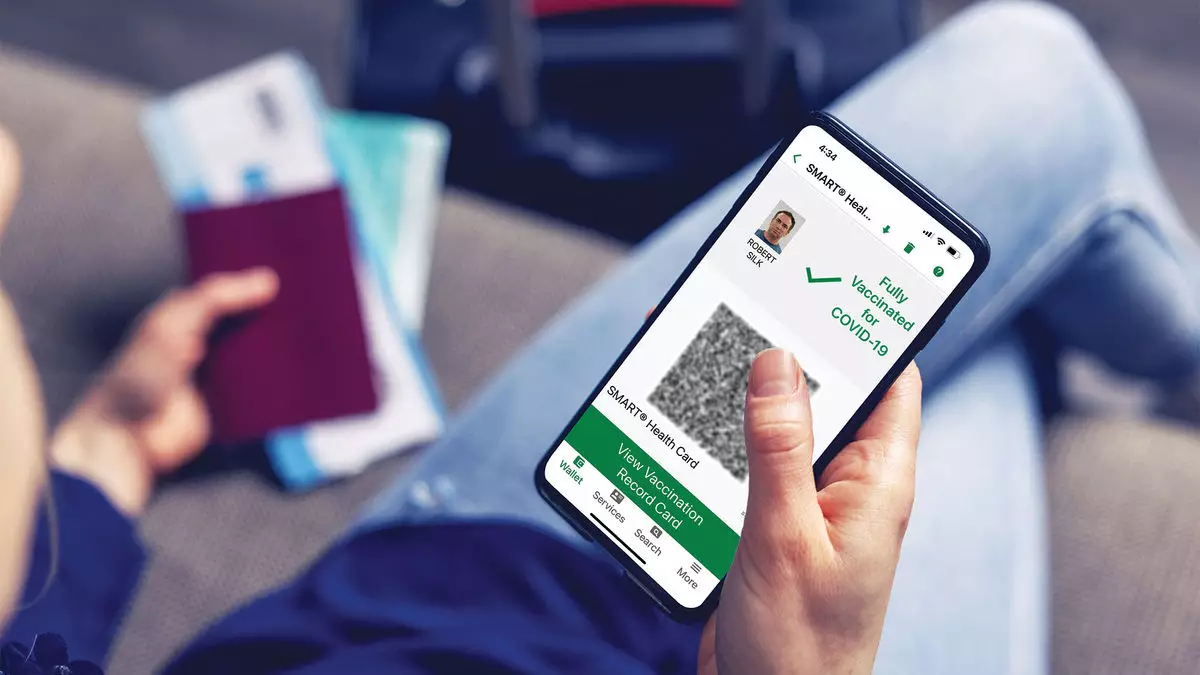The emergence of new public health threats, such as the mpox outbreak in Central Africa, highlights the ongoing vulnerabilities faced by global health systems. This alarming reality is a wake-up call regarding how quickly a local health issue can escalate into a worldwide crisis. The recent attention on mpox, officially declared a public health emergency by the World Health Organization (WHO), underscores the critical need for robust systems to manage health data, particularly in the context of cross-border travel and international cooperation.
Amid these challenges, experts are optimistic about the strides made in digital health credentials during the Covid-19 pandemic. Heather Roth, the Immunization Branch Director for the Colorado Department of Public Health & Environment, emphasizes that the initial groundwork laid during the pandemic makes future adaptations more feasible. The urgency of the Covid-19 crisis accelerated efforts to standardize and disseminate digital immunization records, elements that are expected to pave the way for enhanced travel continuity during future health crises.
A significant advancement in this area is the implementation of Smart Health Cards, a digital vaccination record presented in the form of a QR code. Currently, 25 states in the U.S., including Colorado, have adopted this technology, enabling individuals to store and share their vaccination history efficiently. These cards are not merely convenient; they carry standardized and secure data sets, making them universally acceptable across various platforms—be it airlines, border control agencies, or cruise lines.
The Smart Health Card initiative reflects a broader global commitment to improving vaccine credentialing. Several countries, including Canada and Japan, have recognized and adopted these digital health credentials. This international collaboration has been validated by the WHO, which classifies Smart Health Cards as compliant vaccine credentials. JP Pollak, the Chief Product Officer and co-founder of the Commons Project, explains how these digital tools can be swiftly adapted to accommodate future vaccinations, underscoring their versatility in times of public health need.
As we move forward, the consensus among health experts is that future emergencies are not a matter of ‘if’ but ‘when.’ Pollak suggests that integrating additional health records, such as those related to mpox or bird flu, into existing digital infrastructures could be a straightforward process. The lessons learned from the rapid implementation of digital health passes during the Covid-19 pandemic position us well for when another crisis arises.
Despite the current focus on Covid vaccinations, public health departments are gradually extending QR code capabilities to other vaccines. For instance, New York now provides Smart Health Card QR codes for flu vaccinations, illustrating how quickly these systems can evolve. The readiness of travelers to easily access these records is more crucial than ever, particularly in regions where specific immunizations, like yellow fever, are prerequisites for entry.
The development of such digital standards is timely considering the resurgence of international travel in the post-Covid era. Easy access to digital PDF vaccination records is becoming commonplace, alleviating the stress of last-minute travel preparations. Colorado’s launch of an online immunization portal exemplifies how public health departments are making strides in digital record-keeping, allowing individuals to obtain their vaccination histories almost instantaneously.
Travelers now have the possibility of accessing their immunization records while at the airport, a convenience that benefits those who may have procrastinated. Michael Perretta, CEO of Docket, affirms that travelers can often secure the necessary documentation in mere minutes, thus preventing potential disruptions to their travel plans.
As healthcare systems strive for interoperability amid varied medical data formats, the International Patient Summary (IPS) initiative stands out. With participation from 40 countries, this project aims to harmonize health records for seamless integration across borders. The ability to present a digital QR code containing vital health information can significantly enhance the readiness and quality of medical care received abroad, particularly in unforeseen circumstances.
While the adoption of IPS standards is still in its infancy—few medical facilities are equipped to interpret these records—initial use cases have demonstrated its potential. Notably, Malaysia’s health ministry used the IPS framework to digitize health examination results for Hajj pilgrims, facilitating a smooth exchange of critical health data.
As we advance into an uncertain future marked by the potential for new public health emergencies, the groundwork laid during the Covid-19 pandemic in the realm of digital immunization records serves not only as a practical tool for managing vaccination history but also as a vital resource for global health collaboration and preparedness. The ongoing development and refinement of these technologies will be crucial in our collective ability to respond effectively to emerging health threats.


Leave a Reply